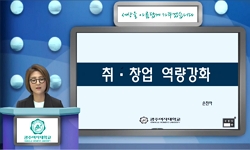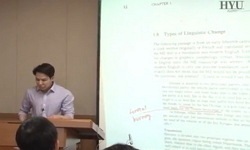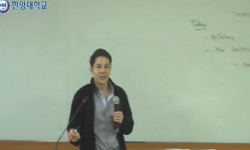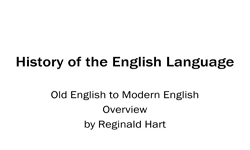This paper reveals the aspect of Korean ‘kuruma’ mainly from the late 19th century to the first half of the 20th century in terms of language and history. ‘Kuruma’ in Korean is a word borrowed from Japanese sounds in the late 19th century. Jap...
http://chineseinput.net/에서 pinyin(병음)방식으로 중국어를 변환할 수 있습니다.
변환된 중국어를 복사하여 사용하시면 됩니다.
- 中文 을 입력하시려면 zhongwen을 입력하시고 space를누르시면됩니다.
- 北京 을 입력하시려면 beijing을 입력하시고 space를 누르시면 됩니다.
https://www.riss.kr/link?id=A104306406
-
저자
이시즈카 레이코 (배화여자대학교)

- 발행기관
- 학술지명
- 권호사항
-
발행연도
2017
-
작성언어
Japanese
-
주제어
. ; 車 ; 語誌 ; 日韓語彙 ; 借用語 ; 意味領域 ; kuruma ; history of the language ; Japanese and Korean vocabulary ; borrowed words ; semantic domain
-
등재정보
KCI등재
-
자료형태
학술저널
- 발행기관 URL
-
수록면
7-25(19쪽)
-
KCI 피인용횟수
1
- DOI식별코드
- 제공처
-
0
상세조회 -
0
다운로드
부가정보
다국어 초록 (Multilingual Abstract)
This paper reveals the aspect of Korean ‘kuruma’ mainly from the late 19th century to the first half of the 20th century in terms of language and history.
‘Kuruma’ in Korean is a word borrowed from Japanese sounds in the late 19th century. Japanese ‘kuruma’ was used in the meaning of <float> irrespective of the times, and also called ‘kuruma’ as a means of transportation that is used frequently in each period. From the mid-nineteenth century to the twentieth century, new means of transportation, such as rickshaws, steam locomotives, trains, trams, subways and bicycles, Kuruma.
On the other hand, ‘kuruma’ of Korean from the late 19th century to the 20th century was used only to mean ‘floats’, unlike Japanese. In other words, it can be seen that the meaning domain of Japanese is wider than that of Korean, and the meaning of Korean is limited to only a part of the meaning of Japanese. Korean ‘kuruma’ was used in the meaning of <rickshaw> and <car> as in Japanese, but it was not settled. Although the notation is unified as one, it is a highly productive word that constitutes a large number of compound nouns.
Korean ‘kuruma’ was used more often than ‘sure’, a native language before 1945, but after 1945, it suffered a decline, especially after 1970. The reason for this is that Korean or Korean language has moved away from the Japanese sphere of influence after the liberation, and the words that were in the Japanese sphere of influence due to the Korean language faction have disappeared.
참고문헌 (Reference)
1 한국학중앙연구원, "한국민족문화대사전"
2 국립국어원, "표준국어대사전"
3 국립중앙도서관, "조선총독부관보활용시스템"
4 이한섭, "일본어에서 온 우리말 사전" 고려대학교 출판부 2014
5 문화체육관광부, "국어의 로마자 표기법"
6 국립국어연구원, "국어 순화 자료집 합본"
7 宋敏, "韓國語內의 日本的 外來語 問題" 日本学会 23 : 3-23, 1989
8 李漢燮, "韓国語に入った日本語" 6 : 195-221, 1985
9 熊谷明泰, "韓国の言語醇化資料と日本語系借用語" 韓国外国語大学日本文化研究所 (3) : 159-215, 1990
10 李光済, "韓国の国語醇化資料集における日本語語彙ー生活用語を中心にー" 名古屋大学国際言語文化研究所 6 : 151-161, 2006
1 한국학중앙연구원, "한국민족문화대사전"
2 국립국어원, "표준국어대사전"
3 국립중앙도서관, "조선총독부관보활용시스템"
4 이한섭, "일본어에서 온 우리말 사전" 고려대학교 출판부 2014
5 문화체육관광부, "국어의 로마자 표기법"
6 국립국어연구원, "국어 순화 자료집 합본"
7 宋敏, "韓國語內의 日本的 外來語 問題" 日本学会 23 : 3-23, 1989
8 李漢燮, "韓国語に入った日本語" 6 : 195-221, 1985
9 熊谷明泰, "韓国の言語醇化資料と日本語系借用語" 韓国外国語大学日本文化研究所 (3) : 159-215, 1990
10 李光済, "韓国の国語醇化資料集における日本語語彙ー生活用語を中心にー" 名古屋大学国際言語文化研究所 6 : 151-161, 2006
11 熊谷明泰, "解放前朝鮮語に対する日本語の言語干渉" 韓国外国語大学日本文化研究所 (6) : 215-263, 1991
12 李漢燮, "現代韓国語に入っている日本語" 大阪大学国文学研究室 44 : 1984
13 大阪外国語大学朝鮮語研究室, "朝鮮語大辞典" 角川書店 1986
14 李漢燮, "日韓同形の漢字表記語彙" 明治書院 3 (3): 102-113, 1984
15 小学館国語辞典編纂部, "日本国語大辞典" 小学館 2002
동일학술지(권/호) 다른 논문
-
- 한국일본언어문화학회
- 石塚令子
- 2017
- KCI등재
-
「と思う」の用法に関する記述的研究 -形容詞述語文を中心に-
- 한국일본언어문화학회
- 高橋美保
- 2017
- KCI등재
-
韓国人日本語学習者による言語行動の「丁寧さ」に対する認識 - KJ法による質的データの分析・考察 -
- 한국일본언어문화학회
- 金東奎
- 2017
- KCI등재
-
<おる><ておる>の意味・用法 -リビングバイブル旧約聖書(1984)を対象として-
- 한국일본언어문화학회
- 李成圭
- 2017
- KCI등재
분석정보
인용정보 인용지수 설명보기
학술지 이력
| 연월일 | 이력구분 | 이력상세 | 등재구분 |
|---|---|---|---|
| 2028 | 평가예정 | 재인증평가 신청대상 (재인증) | |
| 2022-01-01 | 평가 | 등재학술지 유지 (재인증) |  |
| 2019-01-01 | 평가 | 등재학술지 유지 (계속평가) |  |
| 2016-01-01 | 평가 | 등재학술지 유지 (계속평가) |  |
| 2012-01-01 | 평가 | 등재학술지 유지 (등재유지) |  |
| 2009-01-01 | 평가 | 등재학술지 선정 (등재후보2차) |  |
| 2008-01-01 | 평가 | 등재후보 1차 PASS (등재후보1차) |  |
| 2007-01-19 | 학회명변경 | 한글명 : 일본언어문화학회 -> 한국일본언어문화학회영문명 : 미등록 -> Japanese Language & Culture Association of Korea |  |
| 2007-01-01 | 평가 | 등재후보학술지 유지 (등재후보1차) |  |
| 2005-01-01 | 평가 | 등재후보학술지 선정 (신규평가) |  |
학술지 인용정보
| 기준연도 | WOS-KCI 통합IF(2년) | KCIF(2년) | KCIF(3년) |
|---|---|---|---|
| 2016 | 0.31 | 0.31 | 0.28 |
| KCIF(4년) | KCIF(5년) | 중심성지수(3년) | 즉시성지수 |
| 0.26 | 0.25 | 0.547 | 0.03 |




 KCI
KCI





